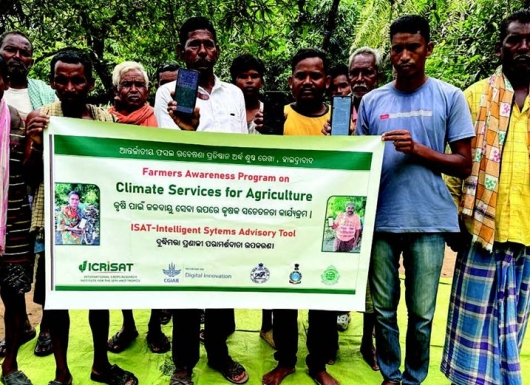Submitter: (ICRISAT)
This is a decision-support framework that integrates climate risk assessment, CSA technology bundling, participatory prioritization, and ex-ante impact evaluation to enable data-driven investment planning. It addresses the need for site-specific, scalable adaptation pathways to strengthen climate resilience in agriculture.

The framework integrates a systems perspective and is low-cost, modular, and adaptable to diverse agroecological and institutional contexts. It utilizes publicly available data and case studies, participatory methods, and open-source tools, thereby minimizing the need for extensive infrastructure or proprietary systems. Designed for integration into existing planning processes (e.g., national-level and state-level action plans), it is partner-ready for governments, NGOs, and donors. Scaling requires minimal investment in training, local facilitation, and data mapping, all of which ICRISAT supports through operational toolkits, digital templates, and capacity-building modules.
Dr Shalander Kumar, Deputy Program Director, EST, ICRISAT
Email: shalander.kumar@icrisat.org